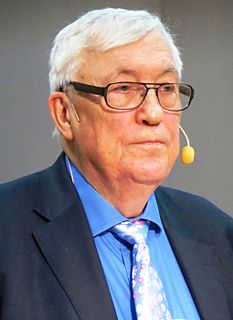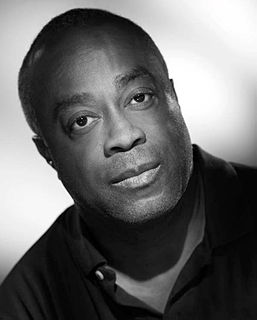A Quote by Martin Rees
The scientific community should work as hard as possible to address major issues that affect our everyday lives such as climate change, infectious diseases and counterterrorism; in particular, 'clean energy' research deserves far higher priority. And science and technology are the prime routes to tackling these issues.
Quote Topics
Address
Affect
Change
Clean
Clean Energy
Climate
Climate Change
Community
Counterterrorism
Deserves
Diseases
Energy
Everyday
Far
Hard
Higher
Infectious
Infectious Diseases
Issues
Lives
Major
Our
Particular
Possible
Prime
Priority
Research
Routes
Science
Science And Technology
Scientific
Should
Tackling
Technology
Work
Related Quotes
Many good Christians are confused about complex social issues of our day, such as doctor-assisted death or medical research which uses stem cells from human embryos. They wonder, 'Why shouldn't science use discarded fetuses for research?' And if someone finds his medical condition intolerable and hopeless, 'why shouldn't he have the legal right to end his life?' Although the Bible does not address these issues in particular, it does provide guiding insights.
Despite the international scientific community's consensus on climate change, a small number of critics continue to deny that climate change exists or that humans are causing it. Widely known as climate change "skeptics" or "deniers," these individuals are generally not climate scientists and do not debate the science with the climate scientists.
I love that the work that we do is so vital to science. We're in a lot of ways at the scientific front line. The work that we're doing to build up the computational defense system for infectious diseases, whether it's finding the vaccine as fast as possible this time or next time to detect early outbreaks.
When we talk about big issues like climate justice, of course that involves global and statewide implications. But it's also how we double our street-tree canopy to clean the air. It's converting to electric school buses. All of these issues at the city level start from the day-to-day impacts on people's lives.
Of course there are collaborations. But in official meetings with Western diplomats from the US and the European Union, the major issues of our relationships are simply not discussed. The topics are on climate change or any other issues they want us to agree with them on. But they never discuss how we could develop an equal relationship. They should stop using pompous orchestrated summits and begin a serious dialogue with small meetings.
There are advances in technology and enabling voices, but there are issues with the stories themselves. I think people of color are still not seen as human beings. They're still associated with types, with comedy, but we're in a crisis right now, with things like Black Lives Matter. We need films that address these issues.
I don't like to claim that I am an expert on anything, but I have enough knowledge about climate science and climate system to be able to write scientific papers and go to meetings and talk about monsoon systems and talk about any other things that you want to discuss about climate science issues. I'm as qualified as anybody that you know on this planet on this topic.





































